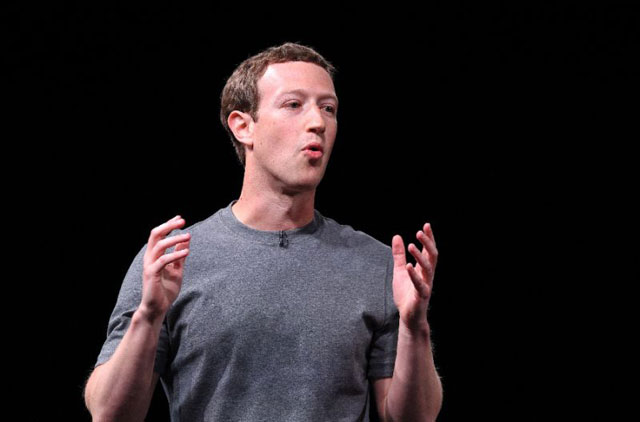
When the all-party conference is held, hopefully the participants will realise that it is not in Pakistan’s interest to allow terrorists safe havens on its soil or allow such elements to launch attacks on other countries from inside Pakistan. This cannot be justified or defended under any circumstance. It takes away any moral high-ground one may have vis-à-vis, say, in an argument which suggests that Pakistan has already done a lot for the war on terror and at an enormous cost. In any case, a counter-argument to this is ready, in that the Haqqanis have close ties to the Taliban and to al Qaeda, both of whom have inflicted heavy damage over the years on Pakistan’s hapless citizens and indeed on the Pakistani military and law-enforcement apparatus as well. This argument further goes that the notion of strategic depth is in fact deeply flawed and that it does not make sense for Pakistan to back a horse in Afghanistan — i.e. the Taliban — which didn’t perform all too well the last time it was given a chance to run. The Taliban inflicted huge suffering on the Afghan people — most notably on women and minorities and in fact, they have done their bit to contribute to increasing intolerance and bigotry inside Pakistan as well. Following the installation of the Taliban in Kabul in the 1990s, Pakistan ended up becoming a near-pariah in the world and was more or less compelled to side with the US, following 9/11. Why can’t Pakistan let the Afghan people decide or, at the very least, back those who are not extremists and who will, once in power, not force the rest of the Afghans to follow a rigid and retrogressive version of their faith, who will not force women to be kept inside their homes and will not morally police the people?
As for the corps commanders’ conference, one would have to wonder, (following as it did the US Centcom chief’s visit to Pakistan) whether any ultimatum was given, and if the Pakistanis were told in clear terms: “Here are the targets and if you don’t go in and dismantle them, we will do it for you”. One hopes that when the politicians meet and talk over this, they will also ask themselves that isn’t a country, that allows terrorists to use its soil to carry out attacks on other countries, morally bound to act against such elements? The threat of unilateral US action is a very real one, but it needs to be understood why and how the threat materialised in the first place and whether we and our policies share some of the blame for it. The situation can be warded off only if our political parties demonstrate maturity, acumen and a readiness to do what is right. In confrontations between Pakistan and India, it would be the US often acting as an intermediary in cooling tensions between the two — who will do that now?
Published in The Express Tribune, September 27th, 2011.
COMMENTS (12)
Comments are moderated and generally will be posted if they are on-topic and not abusive.
For more information, please see our Comments FAQ


















This is the opportunity for pakistan. The all parties conference should decide two things unanimously that army should work under democratic govt. And the aid from other countries has done most harm to our integrity so from now on we should tell the aiding nations thanks but no thanks. And further we cant confront america right away but to ride on moral high grounds we should have a sensible diplomatic approach. For that strategy should be devised by political leaders so that in future we dont fall pray to ANY super power.
@ Praful shah I pray for that day to come because that money givin by them not reaching the common men any way and then they will learn the way to out by the way dont wory we not gonna ask india .
@plain talk: "It is an eyeopener and illuminates the pitfalls in the way of taking the Haqqanis head on. Please read that and then comment again. " They said the same things when a "Haqqani" Hitler rose in Germany. Charles Lindbergh, the aviation pioneer was invited by Hitler to Germany and shown its Luftwaffe (Air Force). Acres upon acres of fighters and bombers convinced him and he, upon his return, cautioned America on taking on the Fascists. Did America relent then? No! Is it going to back down now? I doubt that! Haqqanis should be more worried now as to when they shall be turned into fishmeal.
Obviously the author of this piece has not read the lengthy special report, "Brutal Haqqani crime clan bedevils US in Afghanistan." It is an eyeopener and illuminates the pitfalls in the way of taking the Haqqanis head on. Please read that and then comment again.
Have these wise politicians have taken into account the impact on economy. If US funds stop, IMF tightens screws what will happen to economy? Your evergreen Chinese will extract pound of flash for the aid they will give. Do not count unlimited money from them. Finally you have tin cup which you will use to get money. What a nice screwup?
Being wise would be to expose our Strategic assets and depth. That we cannot do. We seem to have found the answer: defense pact with China. That ought to do it! Who needs the USA?!!!!
Just can't believe how cut off from reality the army and it's commanders are - that they continue to protect terrorists!!
As the editorial rightly points out, the power with the Army HQ is more on security and foreign policy matters, So even if the civilian govt decides to fix the haqqanis (very unlikely), will the army oblige the civilian govt?. Will be good for Pakistan if that happens,.
Forget the past, Pakistan has the opportunity to do the right things and get back the support of the Afghan population it as lost. It must deliver Haqqani and Mullah Omar to the Afghan Government. Alternatively these groups must be disarmed, persuaded to accept the new Afghan constitution and asked to go and fight the electoral battle to prove their strength. Please note electoral battle not gun battle. Let them prove their support base, if they get majority let them rule. Taking sides whether out of fear or anxiety is a losing proposition as history has proved in the case of Pakistan. Getting wiser is better sooner rather than later !
Defying US is the mood in Pakistan, not tackling terrorists.